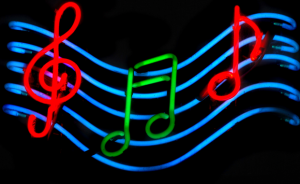 Have you ever been drawn to sad music when you’re feeling low, or angry-sounding music when you’re mad? Some new research confirms that people choose that association, in relation to their mood. The research, reported in the Journal of Consumer Research, found that, for example, people in negative moods choose sad music even when more pleasant alternatives are available. From the research report: “(Participants) liked angry music more when they were frustrated by interpersonal violations (being interrupted; someone always being late) than by impersonal hassles (no internet connection; natural disaster).” And, when they “were asked to recall experiences involving loss, preference for sad music was significantly higher when they had experienced an interpersonal loss (losing a personal relationship) versus an impersonal loss (losing a competition).”
Have you ever been drawn to sad music when you’re feeling low, or angry-sounding music when you’re mad? Some new research confirms that people choose that association, in relation to their mood. The research, reported in the Journal of Consumer Research, found that, for example, people in negative moods choose sad music even when more pleasant alternatives are available. From the research report: “(Participants) liked angry music more when they were frustrated by interpersonal violations (being interrupted; someone always being late) than by impersonal hassles (no internet connection; natural disaster).” And, when they “were asked to recall experiences involving loss, preference for sad music was significantly higher when they had experienced an interpersonal loss (losing a personal relationship) versus an impersonal loss (losing a competition).”
The full summary of the research, reported in Medical News Today, follows:
Consumers experiencing relationship problems are more likely to prefer aesthetic experiences that reflect their negative mood, according to a new study in theJournal of Consumer Research.
“Emotional experiences of aesthetic products are important to our happiness and well-being. Music, movies, paintings, or novels that are compatible with our current mood and feelings, akin to an empathic friend, are more appreciated when we experience broken or failing relationships,” write authors Chan Jean Lee (KAIST Business School), Eduardo B. Andrade (FGV School of Administration), and Stephen E. Palmer (University of California, Berkeley).
Consumers experience serious emotional distress when intimate relationships are broken, and look for a surrogate to replace the lost personal bond. Prior research has reported that consumers in a negative mood prefer pleasant, positive aesthetic experiences (cheerful music; fun comedies) to counter their negative feelings. However, under certain circumstances, consumers in negative moods might choose aesthetic experiences consistent with their mood (sad music; tear-jerking dramas) even when more pleasant alternatives are also available.
In one study, consumers were presented with various frustrating situations and asked to rate angry music relative to joyful or relaxing music. Consumers liked angry music more when they were frustrated by interpersonal violations (being interrupted; someone always being late) than by impersonal hassles (no internet connection; natural disaster).
In another study, consumers were asked to recall experiences involving loss. Preference for sad music was significantly higher when they had experienced an interpersonal loss (losing a personal relationship) versus an impersonal loss (losing a competition).
“Interpersonal relationships influence consumer preference for aesthetic experiences. Consumers seek and experience emotional companionship with music, films, novels, and the fine arts as a substitute for lost and troubled relationships,” the authors conclude.
